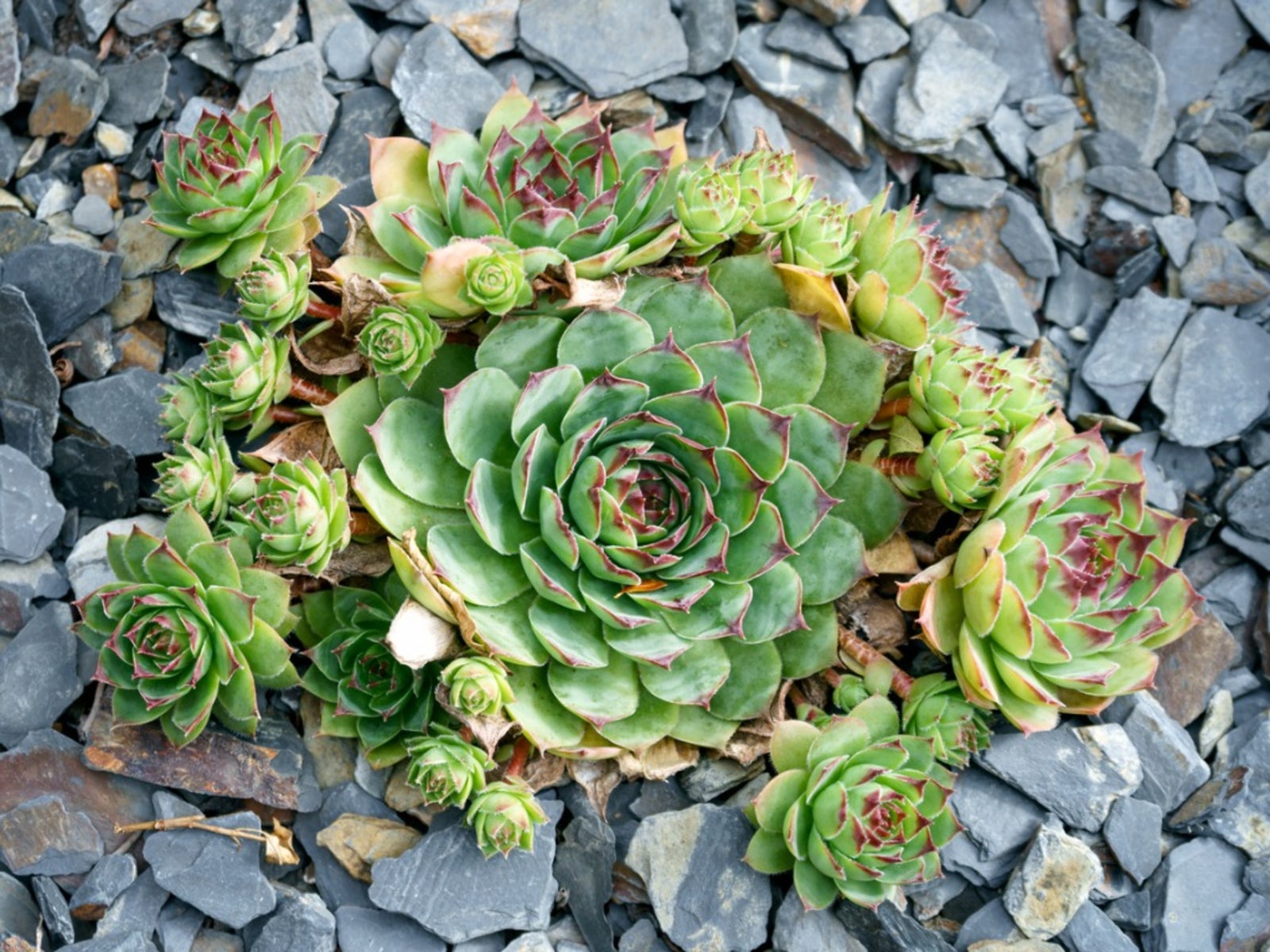Growing Hens And Chicks - Using Hens And Chicks In Your Garden


Sign up for the Gardening Know How newsletter today and receive a free copy of our e-book "How to Grow Delicious Tomatoes".
You are now subscribed
Your newsletter sign-up was successful
Hens and chicks are members of the Sempervivum group of succulent plants. They are commonly called houseleeks and grow well indoors and out, in cool or hot temperatures.
Hens and chicks plants are so called because of the rosette shape and habit of the plant to produce numerous babies. A rockery or dry, nutrient challenged location is a good place for growing hens and chicks. An easy to care for garden scheme should include hens and chicks, sedum, and sprawling rock cress.
Using Hens and Chicks Plants
Hens and chicks (Sempervivum tectorum) is an alpine plant, which gives it an amazing tolerance for poor soils and unwelcoming conditions. The mother plant is attached to the babies (or chicks) by an underground runner.
The chicks may be as small as a dime and the mother can grow to the size of a small plate. Hens and chicks make excellent container plants both for the interior and exterior of the home.
How to Grow Hens and Chicks
Growing hens and chicks is easy. The plants are readily available in most nurseries. They require full sun and well drained, even gritty soil. Hens and chicks don't need much fertilizer and should rarely be watered. As succulents, hens and chicks plants are accustomed to very little water.
A fun project is learning how to grow hens and chicks from the offsets. The chick can be gently pulled off the mother plant and installed in a new location. Hens and chicks require very little soil and can be made to grow even in rock crevasses. The ideal temperature for hens and chicks is between 65 and 75 degrees F. (18-24 C.). When temperatures zoom upwards or plummet down, the plants become semi-dormant and will cease growing.
Potted plants can be placed in clay pots with a cactus or succulent mix, like this Espoma Organic Cactus Potting Soil Mix, 4Qt, from Amazon. You can also make your own with two parts topsoil, two parts sand, and one part perlite. Potted plants will need more fertilizer than those in the ground. A liquid fertilizer, like this GARDENWISE Organic Liquid Plant Food for Indoor Houseplants from Amazon, diluted by half should be watered in during spring and summer irrigation. You can also grow hens and chicks from seed.
Sign up for the Gardening Know How newsletter today and receive a free copy of our e-book "How to Grow Delicious Tomatoes".
Online nurseries carry an amazing array of varieties and seeding your own will give you many forms for you and your friends. Seed is sown in a cactus mix and misted until evenly damp, then the seeds are kept in a warm room until germination. After germination, some fine gravel is sprinkled around the plants to help conserve moisture.
Seedlings will need to be misted every few days and grown in a bright sunny window. Transplant them after they have reached an inch (2.5 cm.) in diameter. Hens and chicks plants need little care. The mother plant will die off after four to six years and should be removed.
The plants produce a flower when mature and these should be pulled off the plant when they expire. Divide the chicks from the mother plant at least every two years to prevent overcrowding.

Bonnie Grant is a professional landscaper with a Certification in Urban Gardening. She has been gardening and writing for 15 years. A former professional chef, she has a passion for edible landscaping.